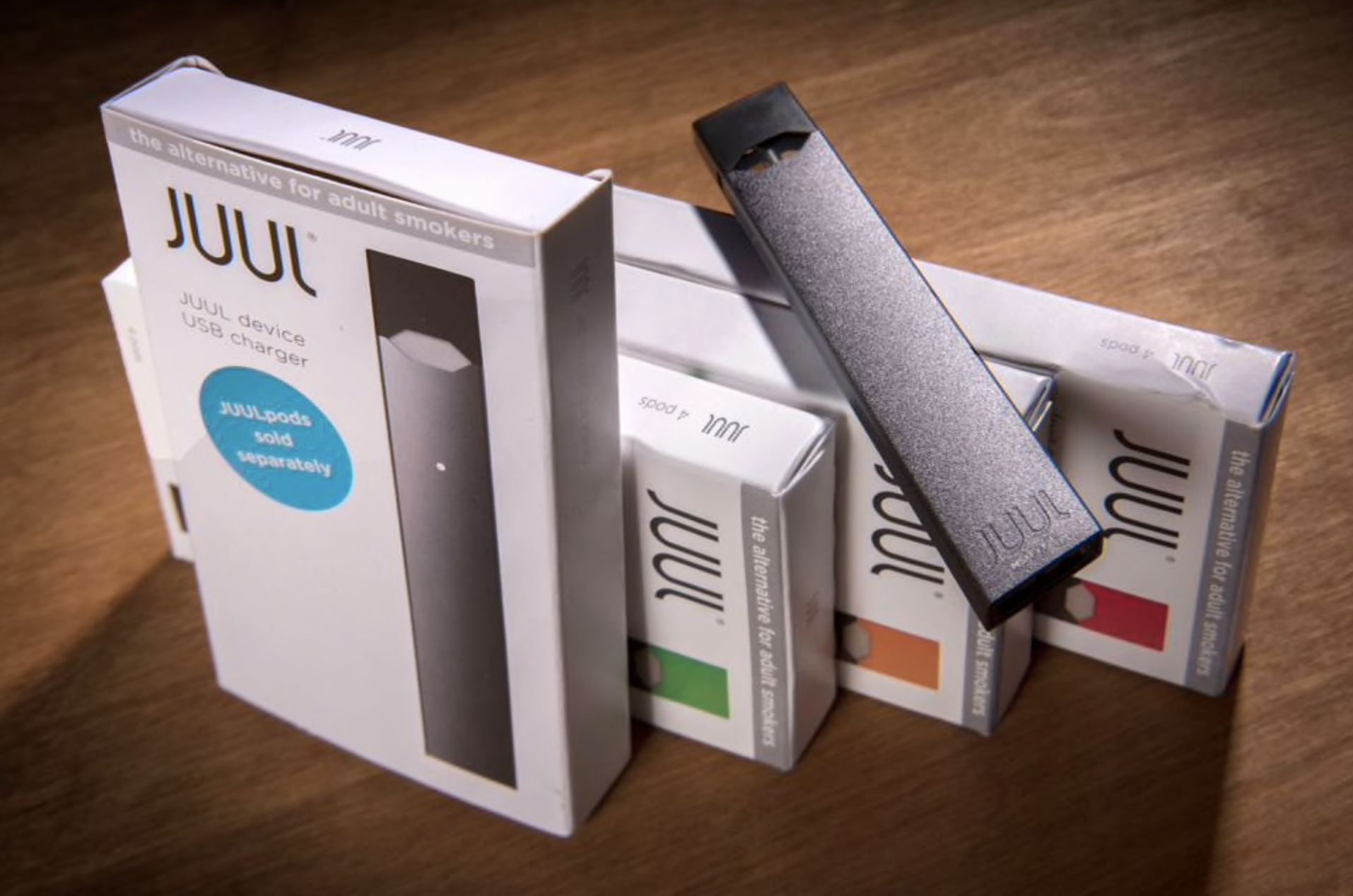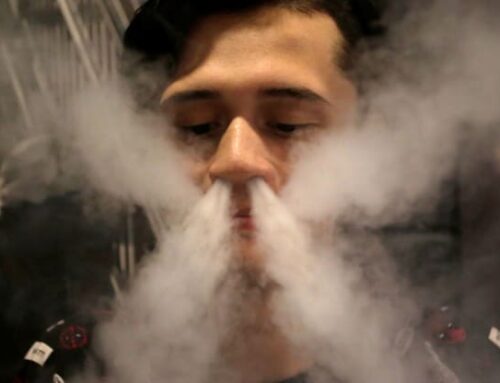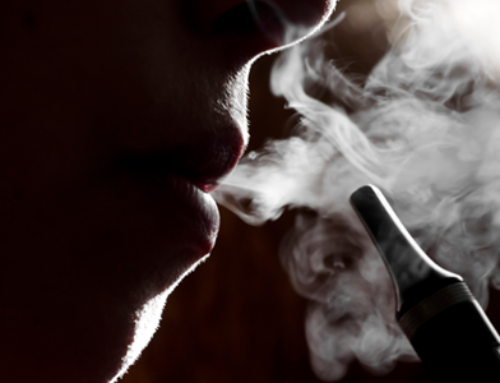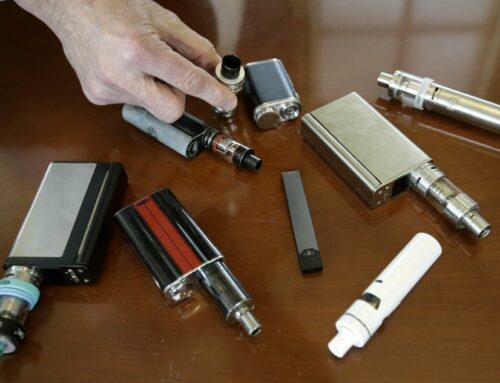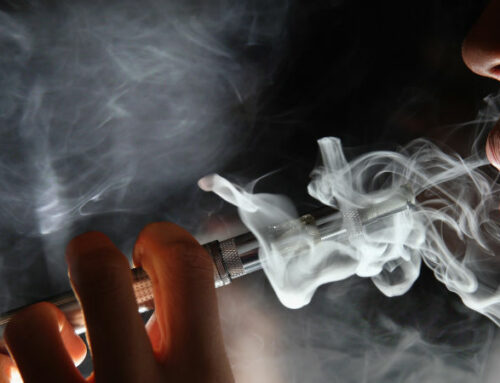The Middlesex County teen says he was 16 when friends introduced him to vaping at his high school.
He quickly went to a local convenience store to purchase his own JUUL-brand e-cigarette and sample different flavored-nicotine cartridges, especially his favorite fruit medley and mango pods.
A year later, the teen said he was vaping two pods a day and sleeping with his JUUL in his hand, so he could feel around in the sheets for it when he awoke and put it in his mouth right after opening his eyes.
“He would JUUL during class, at home, while driving, practically anywhere that he could get away with it. He struggled to function without nicotine, and when he tried to quit using the product, he would have mood swings and become irritable,” according to a lawsuit filed earlier this month.
He blames JUUL for getting him hopelessly addicted to nicotine.
The Middlesex County teenager, now 19, is one of at least four young New Jersey residents who have filed lawsuits against JUUL, the popular e-cigarette company, in recent weeks.
Nearly all of the teenagers and young adults are identified only by their initials in the separate lawsuits filed in state and federal court.
All tell similar stories of getting introduced to JUUL-brand e-cigarettes, which are shaped liked flat USB drives, by friends in high school and sampling the fruit-flavored pods without knowing they could get addicted to the nicotine.
“JUUL’s irresponsible and intentional marketing toward teenagers has been predatory since the company launched,” said Domenic Sanginiti, an attorney representing two of the young people suing in New Jersey. “JUUL deliberately used social media and viral marketing campaigns to lure teenagers into using its dangerous product.”
The lawsuits say JUUL, which recently added larger warnings to its packaging, did not properly warn teens that their products contained nicotine and could be addictive. The lawsuits also cite JUUL’s past advertising campaigns, which featured young people in their ads.
Photos of JUUL advertising and e-cigarette ads from “JUUL Advertising Over its First Three Years on the Market” from the Stanford Research into the Impact of Tobacco Advertising. (Stanford Research)
Several similar lawsuits have been filed against JUUL in Alabama, California, Florida and New York. Most involved teenagers.
JUUL officials deny marketing to teenagers.
“JUUL Labs is committed to eliminating combustible cigarettes, the number one cause of preventable death in the world,” the company said in a statement. “Our product has always only been intended to be a viable alternative for the one billion current adult smokers in the world. We have never marketed to youth and do not want any non-nicotine users to try our products.”
The lawsuits popping up around the nation, including some proposed class action lawsuits, use similar language and reprint unfounded allegations, JUUL officials said.
“Like the prior cases that this one copies, it is without merit and we will defend our mission throughout this process,” the California-based company said in its statement.
The other lawsuits filed in New Jersey in recent weeks were filed by:
— A 20-year-old New Jersey man who said he got hooked on JUUL products in high school when he was 17, starting with the mango-flavored nicotine pods, then moving to the company’s “Cool Mint” pods. He eventually vaped two pods a day and has begun smoking traditional cigarettes, the lawsuit said.
–A 16-year-old New Jersey boy and his mother who said the teenager started using JUUL vaping products around his 14th birthday. He continues to vape and his addiction to nicotine has caused “severe and permanent personal injuries, pain, suffering and emotional distress,” their lawsuit says.
–A Rowan University freshman from Medford, Burlington County, who says he started using JUUL e-cigarettes when he was 16. He quickly became addicted, despite his mother’s efforts to get him to stop, his lawsuit says. He lost 12 pounds in the last year and was hospitalized for three days earlier this month after he vomited blood.
In New Jersey, it is illegal to sell tobacco products, including e-cigarettes, to those under 21 under a law signed by Gov. Chris Christie in 2017. But none of the New Jersey teenagers in the lawsuits said they had any problems obtaining JUUL products.
Nationwide, e-cigarette use has been rising among teenagers, according to data from the National Youth Tobacco Survey. About a fifth of high schoolers said they tried e-cigarettes in 2018 — a 78 percent increase over the previous year.
The lawsuits come as state and federal health officials are investigating more than 150 cases of unexplained lung illnesses that appear to be linked to vaping.
The Centers for Disease Control and Prevention has identified 153 possible cases in 16 states, including New Jersey, federal officials said Wednesday. Most of the patients are teenagers or young adults and some had vaped THC, a chemical found in marijuana, before they became sick.
“While some cases in each of the states are similar and appear to be linked to e-cigarette product use, more information is needed to determine what is causing the illnesses,” the CDC alert said.
Nine cases were reported in North Jersey, state officials said. The illness does not appear to be linked to a single brand or type of vaping device.

